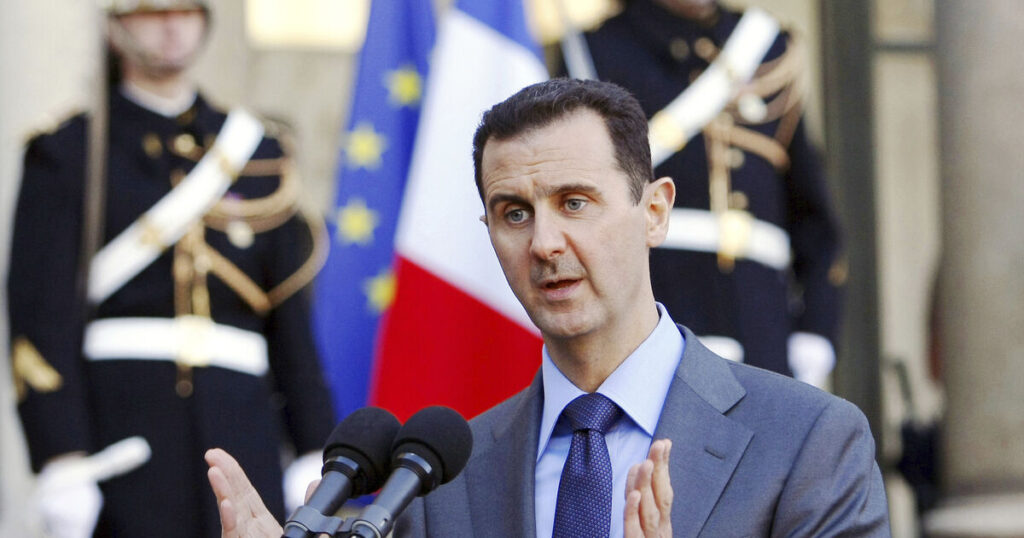France’s highest court is ruling on Friday on whether it can strip the head of state immunity of Bashar al-Assad, the former leader of Syria now in exile in Russia. The case hinges on the gravity of evidence collected by Syrian activists and European prosecutors, accusing him of atrocities.
If the Cour de Cassation judges rule against Assad, it could pave the way for his trial in absentia concerning the use of chemical weapons in Ghouta (2013) and Douma (2018). Legal experts and human rights advocates believe this could also set a precedent, enabling the prosecution of other government leaders implicated in human rights abuses.
Assad has not retained legal representation for these charges and maintains his innocence, denying any involvement in the chemical attacks.
Mazen Darwish, president of the Syrian Centre for Media, which gathered evidence of war crimes, stated that a ruling against Assad would represent “a huge victory for the victims.”
500,000
The number of people believed to have died in Syria’s 13-year civil war
“It’s not only about Syrians; this will open the door for the victims from any country and this will be the first time that a domestic investigative judge has the right to issue an arrest warrant for a president during his rule.”
He added that a favorable ruling could empower his organization to pursue legal action against regime members, such as initiating a money laundering case against Adib Mayaleh, the former Syrian central bank governor and minister of economy. Mayaleh’s legal team has previously argued for his immunity under international law.
Syria was ruled for over half a century by Hafez al-Assad, followed by his son, Bashar. The Arab Spring uprisings in 2011 sparked a rebellion against their authoritarian rule in the country of 23 million. This ignited a brutal 13-year civil war. The Syrian Observatory of Human Rights estimates that the conflict has claimed over half a million lives.
Millions more Syrians have sought refuge in Lebanon, Jordan, Turkey, and Europe.
The Assad regime is accused of exploiting sectarian tensions to maintain its hold on power. This legacy fuels renewed violence in Syria against minority groups, despite assurances from new leaders that the country’s political future will be inclusive and representative of all communities.
Mariana Pena, a human rights lawyer at the Open Society Justice Initiative (which assisted in bringing the case before the court), said that stripping Assad’s immunity could establish a “significant precedent” that “could really set the stage for potentially for other cases in national jurisdictions that strike down immunities.”
The article highlights the significance of the ruling in relation to the International Criminal Court warrants issued against leaders accused of atrocities – specifically mentioning Vladimir Putin, Benjamin Netanyahu, and Rodrigo Duterte. The ruling could empower the legal framework to prosecute not only deposed and exiled leaders but those currently in power.
In 2013, the Syrian government denied responsibility for the Ghouta attack, a claim refuted by the opposition, which pointed out that Assad’s forces were the only faction involved in the brutal civil war with access to sarin gas.
In response, the United States threatened military action, however, Washington settled for an agreement with Moscow for Assad to relinquish his chemical weapons stockpile.


